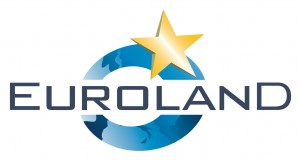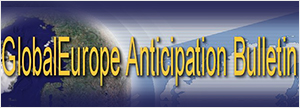Enlargement – no doubt one of the most frequently pronounced terms in Europe today. Following the recent EU summit in Göteborg, it is all but certain now that Europe will be enlarging eastwards before too long. The road map has been drawn, and the dates for the first accessions are finally coming within reach. To many, especially in the candidate countries, this will mark the end of an era, the end of the order of Yalta, and the beginning of a new era, that of a united Europe. Everybody, east and west, is to gain from a bigger Europe. Yet not everybody is looking forward to an expanding EU, especially on the Union’s Eastern fringes.
One area of particular concern is Kaliningrad. Over the last two years, the Russian region in the Southern Baltics has repeatedly featured in the headlines, drawing growing attention to the awkward position it will find itself in after EU enlargement, fuelling an intensifying debate about its future on the verges of the new, enlarged Europe.
Yet at least, after long years of near ignorance in European capitals about the issues
confronting the Russian enclave, a wider European public has eventually woken up to the challenges posed by enlargement to both Russia and the European Union.
Once the Union is enlarged to Poland and Lithuania, Kaliningrad will become a Russian island within the territory of the EU and, more controversially, within the enlarged Schengen area. This would in theory imply, that inhabitants of Kaliningrad would need a Schengen visa to go to mainland Russia – an almost unprecedented situation which has only two other roughly comparable parallels world-wide (Palestine and Angola). This will inevitably raise a series of questions which need answering over the coming years, the most pressing of which concern the movement of people and goods across the external Schengen borders which will soon encircle the enclave.
The fact that these issues are finally being discussed at EU level, is primarily the merit of two countries : Finland, which introduced the concept of the Northern Dimension during its EU presidency in 1999, and Sweden, whose current presidency had made Kaliningrad one of its top priorities. Both countries have made a huge contribution towards the debate over Kaliningrad, which has clearly intensified over the last few months.
This has resulted in issues concerning Kaliningrad being discussed at several high level fora, above all the EU Summit in Stockholm in March 2001, to which the Russian President Vladimir Putin was invited, but also the second EU Foreign Ministers’ meeting on the Northern Dimension in Luxembourg on 9 April 2001, where Kaliningrad was discussed within the framework of the Northern Dimension.
There has also been a series of high level events in Kaliningrad itself since the beginning of the 2001, among which a conference on cooperation in the Baltic Sea area with the participation of the Finnish Foreign Minister, parliamentary hearings on the future of Kaliningrad as a possible pilot region, a visit by EU External Affairs Commissioner Chris Patten and Swedish Foreign Minister Anna Lindh, a visit by a high level Russian delegation comprising the Foreign Minister, Igor Ivanov, and the Minister of Economy, German Gref, as well as a visit by the Lithuanian President, Valdas Adamkus.
These visits followed the publication of a widely appreciated discussion paper on Kaliningrad by the European Commission in January 2001 and growing interest by both the EU and EU member countries in issues surrounding the region, culminating in the opening of a long planned EU Information Centre at Kaliningrad University on 19 June 2001. All this proves that Kaliningrad is being kept high on the European agenda. After years of benign neglect, this in itself is already a step forward.
Recent developments within Russia have also given rise to hope over the future of the region. Following a number of positive noises from senior decision makers in Moscow, not least President Putin, who has contributed to the discussion over Kaliningrad himself, Russia at last seems ready to discuss the enclave with the European Union. In addition, the Russian government in an unprecedented Cabinet meeting on 21 March 2001 discussed questions pertaining to Kaliningrad and decided to prolong the current ‘Special Economic Zone’ in the region for another 10 years, a first sign that concerns expressed by the regional leadership over the planned abolition of fiscal and other privileges were taken seriously. This provides Kaliningrad with a little more stability and predictability – key elements in its effort to attract foreign investment. Within the region itself, the political situation has also slightly stabilised since the elections in November 2000.
Yet not all is good news. Corruption and internal strife among the new leadership mar the improving picture and there is serious concern about alleged plans by the Presidential Representative in North West Russia, Viktor Cherkessov, to turn over the economic management of the region to the federal government in order to ensure the direct implementation of Moscow’s policies. This would effectively amount to the creation of a parallel economic administration to the existing one in Kaliningrad. Such a move, which has to be adopted by the State Duma, would seriously jeopardise both democracy and reform in the region.
In another development, Latvia has decided to impose visa requirements on Kaliningrad residents, which will severely curtail train connections from Kaliningrad to St. Petersburg. Russia has therefore rerouted trains through Lithuania, adding some 10 hours to the journey, with plans being discussed to establish a rail corridor through Lithuania in which passengers would be prohibited from dismounting, a solution also under consideration in EU circles in order to overcome the Schengen related transit problems.
A piece of good news, however, came from Kaliningrad’s southern neighbour in May 2001 when the Polish government announced that it will not impose visa requirements on Kaliningrad citizens in 2001, as originally planned. This would be in line with the Lithuanian approach, under which visa requirements for Kaliningraders will only be introduced in 2003, and would thus give travellers some additional breathing space.
These recent rather mixed developments show quite clearly the need for further serious discussion on the future of Kaliningrad, especially on the movement of people and goods across its borders. Only if these issues are addressed and resolved to the satisfaction of all sides, can the sting be taken out of EU enlargement, allowing accession members and Kaliningrad to be smoothly integrated into the common European home.


 LEAP2040 Toutes les informations et archives Europe2040
LEAP2040 Toutes les informations et archives Europe2040


